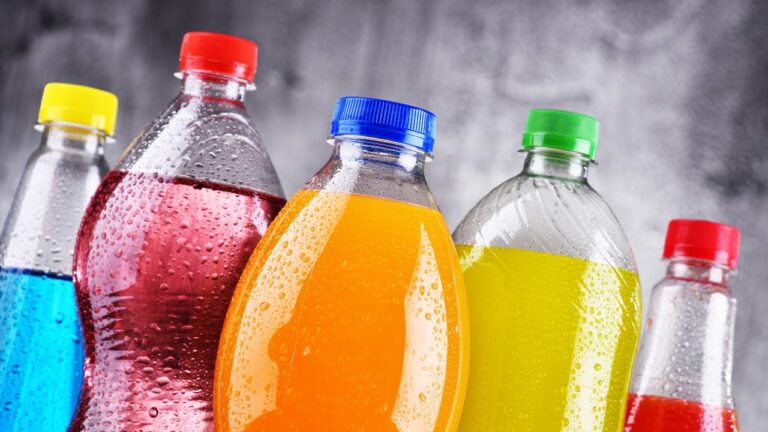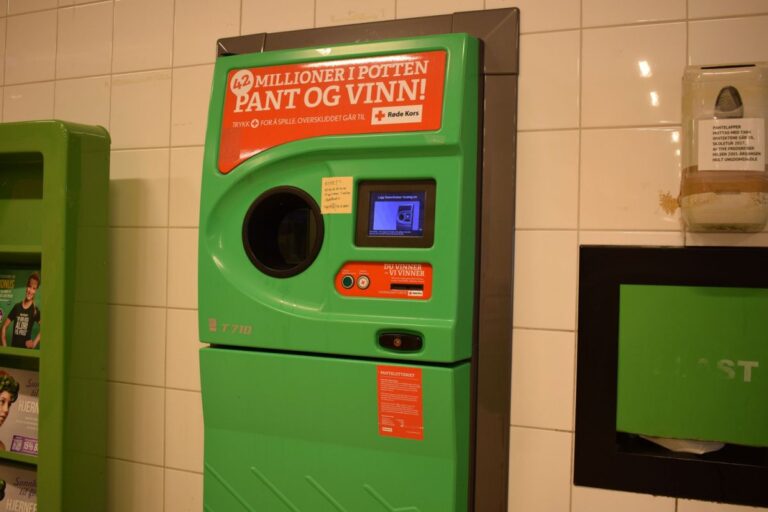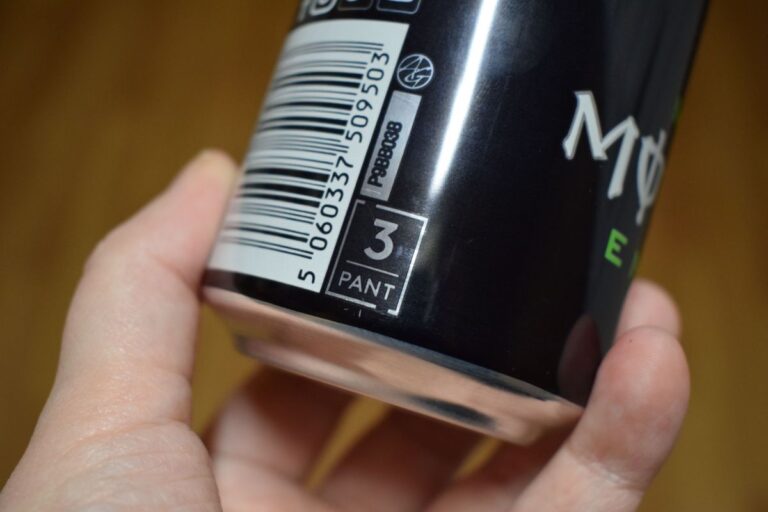Recycling of bottles and cans is a fundamental part of everyday life in Norway. That's made easier by the “pant” deposit return scheme. Here's how it works.
One of the things I had to get used to when I moved to Norway was the different approach to waste and recycling. Like many countries, Norway has a system for separating household waste into categories such as food, cardboard, and plastic.

But when it comes to plastic drinks bottles and aluminium cans, there’s a completely separate process.
Enter the concept of pant. This is the small deposit you pay every time you buy a drink in an aluminium can or plastic bottle in Norway.
Most drinks carry a deposit of either 2 or 3 kroner depending on the size, and you’ll see the word pant clearly marked on the label or printed into the label near the barcode.
It sometimes trips up tourists who expect to pay, say, 25 kroner for a bottle of Pepsi Max. At the cash register, they are charged 27 or 28. It's not a mistake, it's just the bottle deposit. You'll see the pant clearly written on the receipt, too.
Although this might seem like a small extra charge, it adds up fast. You'll notice this when buying a six-pack of beer, for example. The deposit quickly escalates when you pay it six times! Most people, including me, make sure to get it back.
How to Use a Pant Machine
Reclaiming your deposit is simple and, for most people, part of the regular routine when visiting a Norwegian supermarket.

Most grocery stores are equipped with a “reverse vending machine” known as a pant machine. This device looks a bit like a bin, but scans, collects, and processes your bottles and cans.
These machines are usually found near the entrance to the supermarket, often in the foyer. In shopping centres, they might be just outside the store, but still nearby. You feed in the empty bottles and cans one by one, and the machine makes a satisfying little clunk as each one is accepted.
At the end, you press a button and the machine prints a receipt. You then hand this in at the till to get your deposit refunded in cash or deducted from your grocery total.
Not all items are accepted. Some cans, such as those bought at duty-free shops or imported products, won’t be recognised by the machine, and you won’t receive a deposit refund, as no deposit was initially paid.
However, most machines still collect and recycle these items anyway, just without giving you anything back. For convenience, and presumably to prevent littering, there's usually recycling and waste stations nearby for anything that isn't accepted.
The Pant Lottery: Recycling That Pays
Many pant machines offer another option: the chance to donate your deposit to charity. But in Norway, this is done with a little added excitement.
‘Pantlotteriet‘ is a nationwide lottery run in partnership with the Norwegian Red Cross. After inserting your bottles and cans, you can press the “donate” button on the machine.

Instead of receiving your refund, the money goes directly to charity, and you’re entered into an instant-win draw to win up to one million kroner.
If you win, the machine prints out a special ticket with instructions on how to claim your prize. Most people don’t win, of course, but the scheme has raised hundreds of millions of kroner for the Red Cross since its launch.
It’s a popular option, especially for people who don’t need the small change, or want to support a good cause.
Why It Works
The pant system is extremely effective. According to figures from Infinitum, the organisation responsible for managing the system, return rates are consistently above 90%. That means almost every can or bottle sold in Norway ends up back in the recycling system.
It’s common to see queues forming at the machines, especially on weekends. In some stores, the machines are out of order simply because they’re too full and need emptying. This is a sign of how embedded panting is in everyday life here.
And it’s not just regular households doing the work. One of my earliest impressions of Norway was seeing people out and about actively collecting bottles and cans from public spaces.
At large outdoor events or concerts, it’s not unusual to see individuals walking around with huge bags full of discarded drinks containers. Some are homeless or struggling for an income, some aren’t. It’s simply a way to earn a few kroner while helping to keep public areas clean.
A Small Incentive That Makes a Big Difference
The pant system also has an interesting social impact. If you’ve ever hosted a house party in Norway, you’ll know that collecting the empty bottles and cans afterwards isn’t just a clean-up task. It’s a mini cashback scheme!

After one gathering, I returned a full bag of empties and got 63 kroner back. It covered the cost of the required paracetamol!
The system also brings back memories for many. It’s not so different from the milk bottle returns we used to have in the UK, or so I’m told. I just about remember getting orange juice from the milkman and handing back the bottles. That system might be gone, but the principle lives on in Norway’s approach to recycling.
Unfortunately, many local councils in the UK and elsewhere still struggle to recycle milk cartons and other packaging, which leads to more waste. Norway’s focused, centralised system avoids a lot of those problems.
A Model for Others?
Norway isn’t the only country to use a container deposit system, but it is one of the most successful.
Similar schemes exist in Sweden, Finland, Germany, and a few other countries, but it’s the Nordic countries that really show how effective a simple, consistent system can be when it’s supported by the public.
As with many things in Scandinavia, it’s about building good habits and making the process easy to follow. The machines work, the system is convenient, and the incentive is clear.
More countries are now looking at introducing or expanding deposit return schemes. If you're reading this from the UK, take note. It’s a small change that could make a big difference.
Right, that’s enough talk for now. I’ve got a bag of empty cans and bottles by the door, and they’re not going to pant themselves…


Thank you for your lovely report on “panting” in Norway! On most of these machines you can choose not to get money for your bottles and cans, but instead donate the money to the Norwegian Red Cross! When you do that you also attend a lottery with a possibility of winning 2.000.000 kroner! Or smaller amounts, like from 10 kroner to 100.000 kroner! For every krone you donate you’ll get two tickets in the lottery! The machine will tell you if you’ve won right away! If you win 1.000 kr. or smaller amounts the shop will give you the cash. For larger amouts it takes about a week for it to occur in your bank account! I like this very much as it’s an easy and fun way to donate money. And you might win … (been there, done that …)! This is one of these things you should try at least once in Norway! Maybe you’ll be lucky! Maybe you’ll win money to finance you next party!
I didn’t know that! Thanks =)
Ahhh – I remember doing this in Sweden! And in Germany, all the beer bottles seem to have wear marks on their bodies that makes me think they must be fully reused (as opposed to just recycled).
Container deposit laws are by far the most effective way to decrease litter/waste and increase recycling. They work well worldwide including many countries in Europe, most Canadian Provinces, parts of Australia, and some US states. For example, in the USA…the states with deposit programs recycle 75-95% of deposit beverage containers, while other states recycle under 30%. The ten deposit states recycle more containers than the other 40 states combined! So far national legislation has failed in the US, they are currently trying to pass it in Australia. Some European countries continue to use refillable beverage containers at a high rate, I think Norway, Sweden & Germany for example. Refillable bottles are the best environmental choice. Thank you for putting this page together and a great example of how recycling works in Norway. For more information about deposit programs see bottlebill.org and container-recycling.org
With regard to the UK, CPRE has been one of the groups advocating for a deposit refund scheme. Info: http://www.cpre.org.uk/resources/energy-and-waste/litter-and-fly-tipping
I used to do this all the time in Oslo but now that I’m in the US it’s not worth the extra effort. The deposit is less (though possibly about equal relative to the cost of food) and bottle deposit centers are unpleasant places that are only open for a few hours a week.
is picking cans from “recycle bins labelled 1kr/2.5kr” illegal in Norway?
They had those same machines in California in 1990, they soon eliminated them because they actually paid your redemption value you paid when purchasing. Now we have recycling centers that pay $.01 on the plastic bottles we pay $.05 for and $.02 on glass which is also paid $.05 on purchase. The bottles clearly say “CA Redemption Value”, definition is you return it and get back the amount you paid in my book. I try to avoid anything not in an aluminum can because they actually pay fair for them.
The United States “thinks” that they are the greatest country…reality says they are any thing but. We do not recycle our plastic/aluminum cans. The Norwegian countries, particularly Norway are exceptional.
I am ashamed to say that I am from the US since there is little that I like about my home. Currently I am in Mexico for three months.
In California I used to take my elderly mother (in her 80 until early 90s) to the recycling center in her town. She would save all bottles and cans for three months and we would put them in a machine that would give us a receipt that we could take into the grocery store to get the money on the returned recycling we had brought. Sadly, it was mostly the homeless or ‘dumpster divers’ that were recycling materials. My mother was the exception and was always thrilled to get money back for her effort and to do something positive for the environment. Eventually they closed this recycling facility. I wish the consciousness of the American people would be more in line with the Scandinavians and we would want to take care of our environment. Don’t get me wrong, there is a segment of our society that is committed to recycling of waste and renewable energy but it is a very small percentage of our population. I thank the Scandinavian societies for setting a wonderful example for the rest of the world that it can be done.
Is there a similar process in Norway for glass bottles?